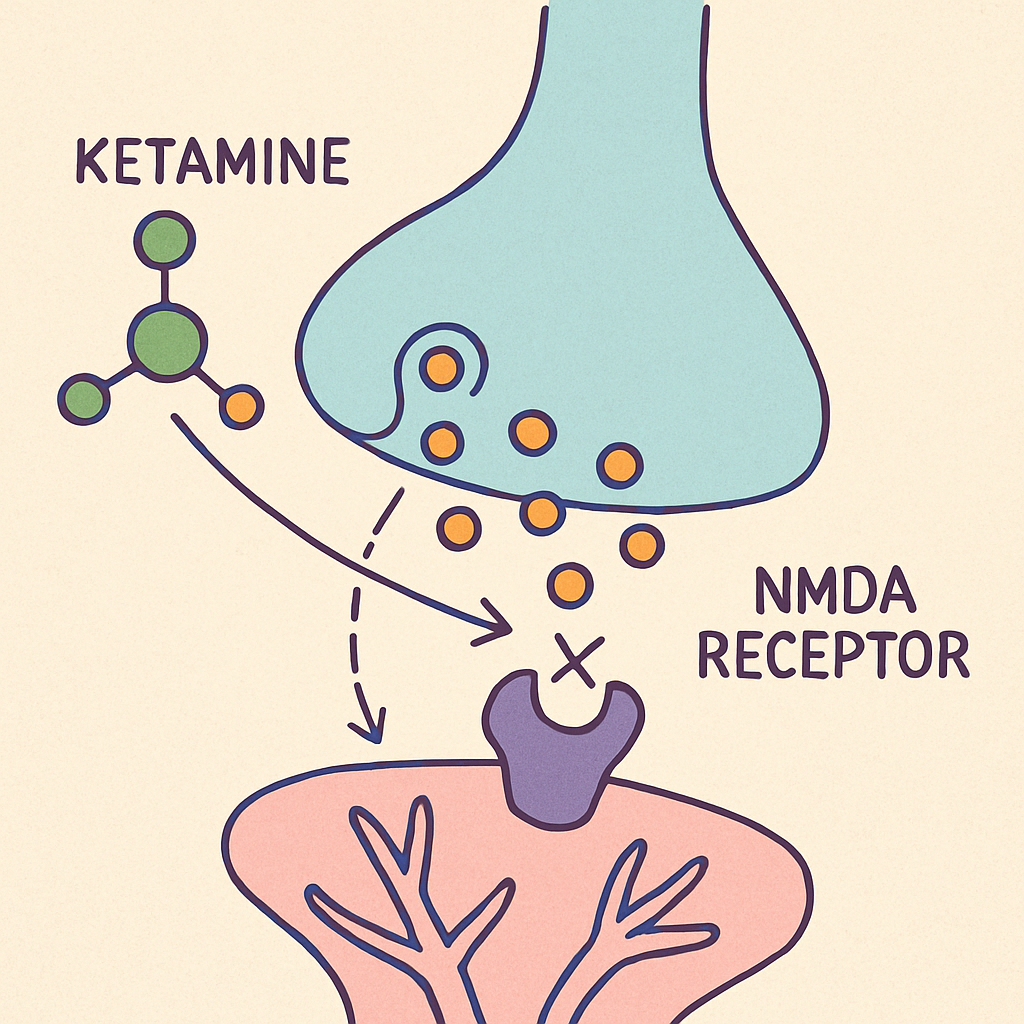August 26, 2025
Discover the benefits of ketamine infusion therapy for depression, offering rapid relief and improved mental health outcomes.
Ketamine infusion therapy is gaining attention as a promising treatment for depression. Originally an anesthetic, ketamine is now explored for its rapid antidepressant effects.
Unlike traditional antidepressants, ketamine can work within hours, offering quick relief. This makes it a potential option for those with treatment-resistant depression.
The therapy involves administering ketamine intravenously in a controlled medical setting. Patients often report improved mood and increased energy after treatment.
However, ketamine infusion is not yet FDA-approved for depression, though many clinics use it off-label. As research continues, ketamine therapy could become a key player in mental health treatment.
Understanding its benefits and risks is crucial for those considering this innovative approach.
Ketamine infusion therapy involves the administration of ketamine through an intravenous (IV) line in a clinical setting. This allows for controlled dosing, ensuring patient safety throughout the treatment process.
Originally developed as an anesthetic, ketamine now shows promise in addressing mental health issues. The therapy is considered particularly for treatment-resistant depression.
During a session, ketamine is carefully injected into the bloodstream under medical supervision. Each session lasts about 40 minutes to an hour, depending on the protocol.
Ketamine infusion therapy is generally administered over a series of sessions, often spanning several weeks. This approach helps sustain the therapeutic effects and can contribute to long-term mood improvement.
Many clinics offer personalized treatment plans, tailoring the therapy to each patient's needs. This personalized care is vital, as responses to ketamine can vary widely.
Ketamine operates primarily by affecting the neurotransmitter glutamate, which plays a crucial role in mood regulation. By modulating this neurotransmitter, ketamine creates rapid changes in the brain's chemistry.
This modulation leads to increased neuroplasticity, the brain's ability to form new neural connections. Enhanced neuroplasticity is linked to mood improvement and cognitive function.
Research indicates that these changes can help alleviate symptoms of depression more quickly than traditional treatments. The rapid action of ketamine is particularly beneficial during a mental health crisis, providing prompt relief when needed most.

Ketamine has emerged as a promising option for those with treatment-resistant depression. For many, traditional antidepressants fail to provide relief.
This therapy offers a new path for those struggling. Unlike conventional medications, ketamine can produce effects within hours, providing swift relief.
Patients often notice a significant mood lift, increased energy, and improved outlook on life. This rapid action can be life-changing during depressive episodes.
Moreover, ketamine's potential to reduce suicidal thoughts makes it a critical option during mental health emergencies. Its ability to work quickly can offer a vital bridge to more sustained therapies.
With ongoing research, ketamine is set to revolutionize depression treatment further. Healthcare professionals are hopeful about its potential to reshape mental health care.
The process of ketamine infusion is straightforward but requires medical supervision. Treatments take place in specialized clinics or medical facilities.
Before starting, patients undergo a thorough medical evaluation. This ensures ketamine therapy is appropriate for their condition.
Sessions typically last between 40 minutes to an hour. Patients remain seated comfortably in a controlled environment.

by Mufid Majnun (https://unsplash.com/@mufidpwt)
During the infusion, some may experience mild dissociation or dizziness. These sensations usually subside quickly after the session.
Afterwards, patients might feel more energetic and positive. It's important to have a friend or family member available to assist after treatment due to potential aftereffects.
Ketamine therapy offers rapid relief from depressive symptoms. This quick action differentiates it from traditional antidepressants, which can take weeks to work.
Patients often report significant mood improvements within hours. This can be a crucial advantage for those in acute mental health crises.
The therapy might also benefit those with anxiety and PTSD. Research is ongoing to understand its full potential beyond depression.
Ketamine's unique mechanism promotes brain health. By enhancing neuroplasticity, it supports healing and growth. Thus, ketamine infusion therapy represents a promising avenue for treating various mental health conditions.
While ketamine therapy can be beneficial, potential risks exist. Most patients tolerate the treatment well, but side effects can occur.
Common side effects include dizziness and nausea. Some patients may experience dissociation or feel detached from reality temporarily.
It's crucial to discuss potential risks with a healthcare provider. They will evaluate if the therapy is safe for you. Proper monitoring during treatment minimizes risk and ensures a supportive environment.
Ketamine infusion may be suitable for those with treatment-resistant depression. It offers hope when other medications fail.
A thorough medical evaluation is essential. This ensures the therapy's safety and appropriateness for the individual.
Patients should discuss ketamine therapy's risks and benefits with their doctor. This helps in making an informed choice.
The potential of ketamine therapy is vast and promising. Ongoing research aims to unlock its full therapeutic benefits for various mental health conditions.
As scientific understanding advances, ketamine might become a mainstream treatment. Innovations in dosage, delivery methods, and combined therapies could enhance outcomes. The evolving landscape of mental health treatment offers hope and a brighter future for many.
Determining if ketamine infusion is suitable involves a careful evaluation. Consulting with a healthcare professional is crucial for guidance.
Consider potential benefits and risks based on personal health needs. This innovative therapy offers hope, yet it's essential to have a thorough understanding before proceeding. Always prioritize informed decision-making for optimal mental health outcomes.

We're now accepting new patients
